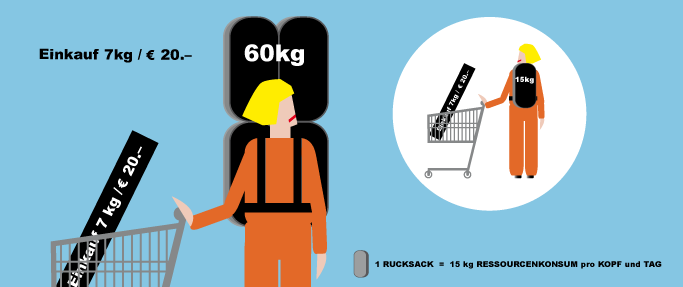
Business
Global environmental problems such as climate change, piles of rubbish and desertification and more are caused by the current unsustainable production and consumption patterns, and the related of resource use. For this reason political decision makers ask for an improvement of resource productivity and a growing number of consumers become aware of the strategic power of their daily buying decisions. Companies that implemented an environmental management system and hence verifiably contribute to the reduction of the negative environmental impacts can expect a competitive advantage. New consumption styles are accruing (keyword: LOHAS), consumers want to be informed about the environmental effects of a potentially bought product in advance and want to make decisions based on objectively calculated criteria.
The goal of ecological sustainability assessment is to benchmark the ecological effects of whole branches, companies, departments or single products in order to generate standardized and thus comparable data. Ratios and indicator sets for measuring resource-efficiency and climate effects provide information on the ecological sustainability on company, product or service level. This data helps structuring and implementing sustainable policies, it is useful to internal controlling as well as external communication concerning sustainability. Thus, sustainability indicators serve for developing strategies towards sustainable production and consumption patterns as well as sustainable life styles and measuring the success towards ecological sustainable economy. In addition to ecological sustainability indicators, qualitative social assessment methods play an important role for analyzing the sustainability of business.

![[date]](/wp-includes/images/smilies/date.png) News
News Blog
Blog![[paper]](/wp-includes/images/smilies/report.png) Publications
Publications![[person]](/wp-includes/images/smilies/user.png) People
People![[projects]](/wp-includes/images/smilies/bricks.png) Projects
Projects![[people]](/wp-includes/images/smilies/group.png) Partners
Partners